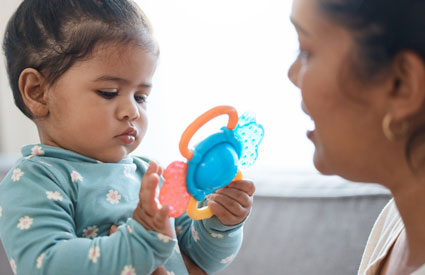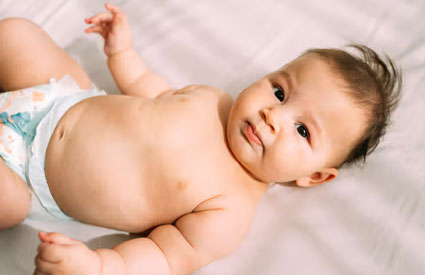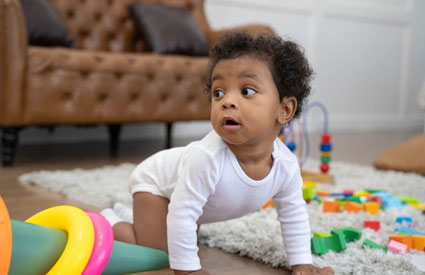Autism in Babies
Autism is a neurodevelopmental condition that affects how children communicate, socialize, and interact with their environment. Each child with autism is unique, with individual strengths and challenges that benefit from personalized support and understanding.
Recognizing Early Signs of Autism in Babies



It’s Rare to See Signs in Newborns
While it’s uncommon to notice autism signs in newborns, some parents do. Identifying early signs of autism in infants can be crucial for timely diagnosis and effective management. Parents often begin observing these signs when their baby is between 6 and 12 months old, or even earlier, according to Thomas Frazier, PhD, a clinical psychologist and chief science officer at Autism Speaks.
Every child develops at their own pace, but knowing what to watch for in terms of developmental milestones can help. Babies with autism may struggle to communicate through sounds or gestures and may not respond to social cues or stimulation.
What Causes Autism in Infants?
The exact causes of autism are not fully understood, but researchers believe it results from a mix of genetic and environmental factors. Known risk factors include having a sibling with autism, premature birth, low birth weight, complications during pregnancy or delivery, certain genetic conditions, advanced parental age, and being male.
Signs of Autism in Newborns (0-3 Months)
Possible early signs of autism in newborns include:
- Not following moving objects with their eyes
- Sensitivity to loud noises
- Limited facial expressions
- Difficulty recognizing familiar faces or new faces
Signs of Autism in Babies (4-7 Months)
Signs of autism in babies aged 4 to 7 months may include:
- Lack of interest in certain sounds or not turning to locate the source of sounds
- Limited babbling or vocalization (e.g., not laughing or squealing)
- Lack of affectionate responses or emotional reactivity
- Not reaching for or holding onto objects
- Minimal facial expressions or lack of spontaneous smiling
Signs of Autism in Babies (8-12 Months)
For older babies between 8 and 12 months, potential signs of autism include:
- Avoiding eye contact
- Limited or incomprehensible speech
- Not using gestures like waving or shaking their head
- Not pointing to objects or pictures
- Difficulty crawling or appearing unbalanced
- Inability to stand even with support
How to Handle an Autism Diagnosis
Receiving an autism diagnosis for your child can feel overwhelming, but it’s important to remember that autistic individuals can lead happy, fulfilling lives. Autism is not a negative label but a way of understanding and supporting your child’s unique needs.
Autism Treatments and Therapies
Depending on your child’s symptoms and needs, these therapies and interventions may be helpful:
- Cognitive Behavioral Therapy (CBT)
- Behavior Management Therapy
- Speech Therapy
- Occupational Therapy
- Physical Therapy
- Sensory Processing Therapy
- Educational Interventions
- Nutritional Therapy
- Medications for managing specific symptoms
- Complementary therapies like animal therapy, art therapy, or chiropractic care
Early intervention and tailored therapies can help your child develop the skills they need to thrive and navigate their world with confidence.
